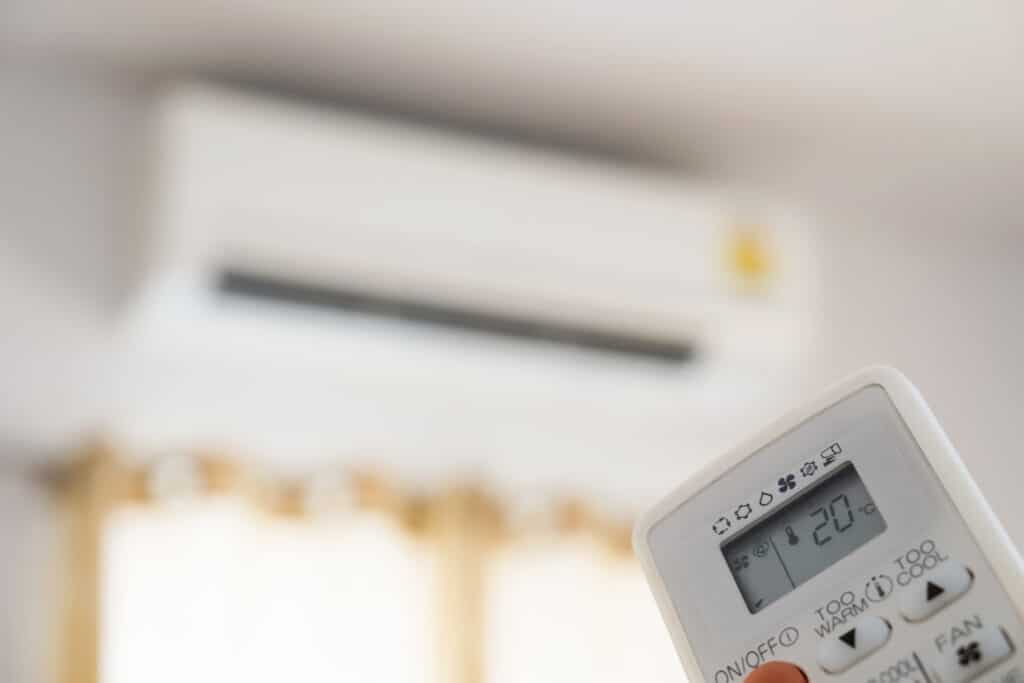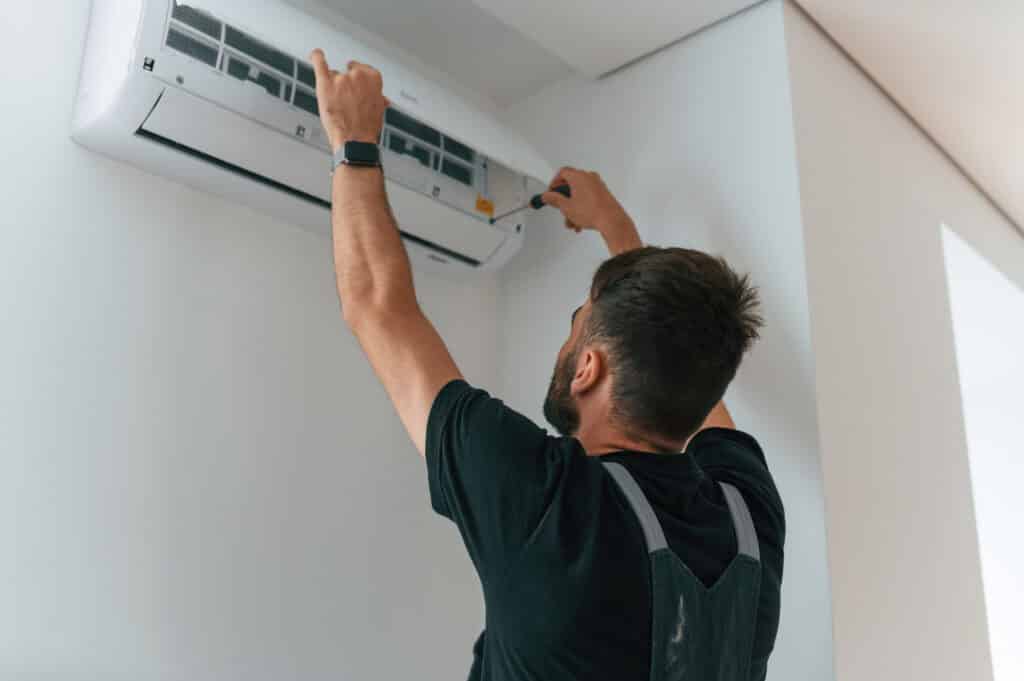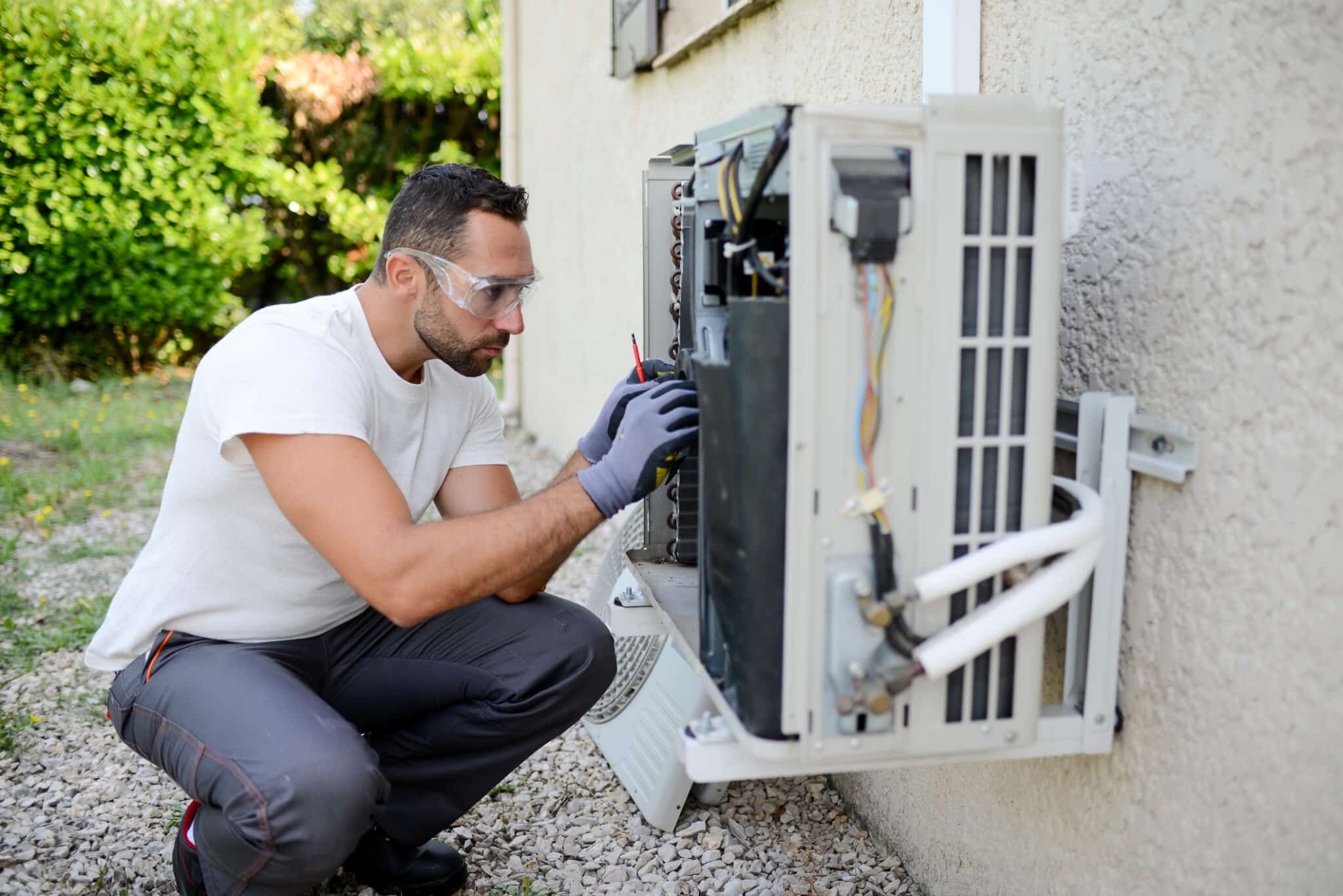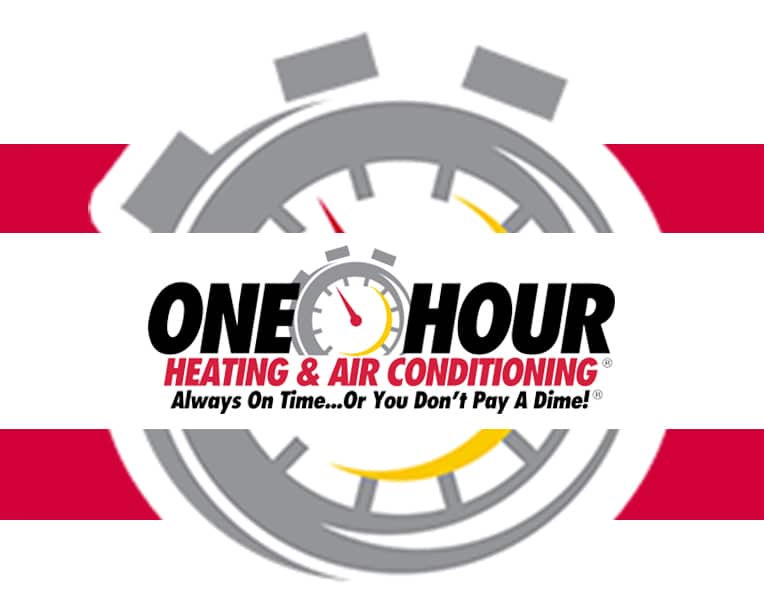Regular AC tune-ups are essential to keeping your air conditioning system efficient and reliable, especially in San Diego’s hot climate. During a tune-up, a technician will inspect, clean, and adjust your AC components, including filters, coils, and refrigerant levels. This preventive maintenance helps improve energy efficiency, lower energy bills, and extend your system’s lifespan. It also reduces the likelihood of unexpected breakdowns and ensures consistent cooling performance. Scheduling annual tune-ups can save you from costly repairs and keep your home comfortable all summer long.

Is your AC ready to beat the summer heat? If you’re like most homeowners in San Diego, you rely on your air conditioner to keep your home cool and comfortable.
But what if your AC isn’t performing as well as it should? Regular AC tune-ups are the key to keeping your system running smoothly, ensuring you stay cool without any unexpected breakdowns.
In this blog, we’ll explore the benefits of regular AC tune-ups and why they’re essential for maintaining a reliable and efficient cooling system in your home.
The Benefits of Regular AC Tune-Ups
Keeping your AC running efficiently is essential, especially in the blazing summer heat of San Diego. Regular AC tune-ups are the key to maintaining a cool and comfortable home all year round.
Just like your car needs regular oil changes, your AC unit requires consistent maintenance to perform at its best. Let’s explore what an AC tune-up involves and why it’s so crucial for your system’s longevity and efficiency.
What is an AC Tune-Up?
An AC tune-up is like a wellness check-up for your air conditioning system. It’s a thorough inspection and maintenance service that helps keep your AC unit in top shape.
During a tune-up, a professional technician will inspect, clean, and adjust various components of your AC system to ensure everything is working properly. This not only helps your AC run more efficiently but also extends its lifespan, saving you money in the long run.
The process usually involves checking the refrigerant levels, inspecting the air filters, cleaning the coils, and ensuring that all electrical connections are safe and secure. If any issues are found, they can be fixed before they turn into bigger, more expensive problems.
Key Components of an AC Tune-Up
Regular AC tune-ups involve several key steps to ensure your system runs efficiently and reliably. Here’s what you can typically expect during a professional AC tune-up:
Inspecting and Replacing Air Filters
Air filters play a crucial role in your AC system by trapping dust, dirt, and allergens, preventing them from entering your home.
During a tune-up, the technician will inspect your air filters and replace them if necessary. Clean air filters help your AC run more efficiently and improve your indoor air quality.
Cleaning and Inspecting Coils (Evaporator and Condenser)
The evaporator and condenser coils in your AC system can get dirty over time, reducing their efficiency.
During a tune-up, these coils are cleaned and inspected to ensure they can effectively absorb and release heat. Clean coils help your AC cool your home faster and more effectively.
Checking Refrigerant Levels and Detecting Leaks
Refrigerant is the lifeblood of your AC system, responsible for cooling the air that circulates in your home. During a tune-up, the technician will check the refrigerant levels and look for any leaks.
Low refrigerant can cause your AC to work harder, leading to higher energy bills and potential damage to the system.
Inspecting Electrical Connections and Wiring
Faulty electrical connections can lead to dangerous situations and system malfunctions. As part of the tune-up, the technician will inspect all electrical connections and wiring, tightening any loose connections and ensuring everything is safe and secure.
Lubricating Moving Parts
Your AC system has several moving parts, such as the motor and fan, which require proper lubrication to function smoothly. During the tune-up, these parts are lubricated to reduce friction, prevent wear and tear, and extend the lifespan of your system.
Testing Thermostat Calibration
A properly calibrated thermostat ensures your AC system maintains the right temperature in your home.
The technician will test your thermostat during the tune-up to ensure it’s accurately reading the indoor temperature and correctly signaling the AC unit to turn on or off as needed.

Benefits of Regular AC Tune-Ups
Investing in regular AC tune-ups offers a wide range of benefits that go beyond just keeping your home cool. Here are some of the key advantages:
Improved Energy Efficiency
One of the biggest benefits of regular AC tune-ups is improved energy efficiency. When your AC system is clean and all parts are working properly, it doesn’t have to work as hard to cool your home. This means it uses less energy, which can significantly reduce your monthly utility bills.
Lower Energy Bills
As your AC system becomes more energy-efficient, you’ll notice a decrease in your energy bills. Regular tune-ups ensure that your system is running at peak performance, so you’re not paying extra for wasted energy. Over time, the savings on your energy bills can more than cover the cost of the tune-ups.
Prevention of Unexpected Breakdowns
No one wants their AC to fail on a scorching hot day. Regular tune-ups help prevent unexpected breakdowns by catching small issues before they become major problems.
This proactive approach means you’re less likely to experience a sudden AC failure when you need it most.
Enhanced Cooling Performance
A well-maintained AC system cools your home more effectively. Regular tune-ups ensure that your system is running smoothly and delivering consistent, even cooling throughout your home. This means fewer hot spots and a more comfortable living environment.
Extended Lifespan of the AC Unit
Just like regular oil changes extend the life of your car, regular AC tune-ups can extend the lifespan of your air conditioning unit.
By keeping all components in good working order, you can avoid premature wear and tear, helping your system last longer and delaying the need for a costly replacement.
How Often Should You Schedule an AC Tune-Up?
Knowing when to schedule your AC tune-ups can make a big difference in the performance and longevity of your system. Here’s what you need to consider:
Recommended Frequency Based on Usage
For most homeowners, scheduling an AC tune-up once a year is sufficient. However, if you use your air conditioning heavily, such as running it almost constantly during the hot San Diego summers, you might benefit from bi-annual tune-ups. This ensures that your system stays in peak condition, even with increased usage.
Best Times of Year for Maintenance
The ideal time to schedule an AC tune-up is just before the summer heat hits. This allows your system to be fully prepared to handle the demands of the hotter months.
However, if you missed your tune-up, don’t worry—you can still schedule one in the early fall to ensure your system remains efficient and ready for the next season.
Signs Your AC Needs a Tune-Up
Even if you’re not due for your annual AC tune-up, there are certain signs that your system might need some attention sooner rather than later. Here’s what to look out for:
Higher Than Usual Energy Bills
If you notice a sudden spike in your energy bills without a corresponding increase in usage, it could be a sign that your AC is working harder than it should. This often indicates that your system isn’t running efficiently and may need a tune-up to restore its performance.
Reduced Airflow or Uneven Cooling
Have you noticed that some rooms in your home are cooler than others, or that the airflow from your vents seems weaker than usual? These could be signs that your AC needs a tune-up.
Reduced airflow can indicate issues like clogged air filters or dirty coils, both of which can be addressed during a maintenance check.
AC Running Constantly or Short Cycling
If your AC seems to be running non-stop or turning on and off frequently (a problem known as short cycling), it’s time to call in a professional.
These issues can signal underlying problems, such as a malfunctioning thermostat or refrigerant leaks, which need to be addressed during a tune-up.
Unusual Noises or Smells
Strange noises like grinding, squealing, or banging, as well as unusual smells coming from your AC unit, are clear indicators that something is wrong.
These could be signs of worn-out parts, electrical issues, or mold growth inside the unit. A tune-up can help identify and fix these problems before they cause further damage.
Common Problems Prevented by AC Tune-Ups
Regular AC tune-ups don’t just keep your system running smoothly; they also help prevent a variety of common problems that could otherwise lead to costly repairs. Here are some of the most common issues that can be avoided with routine maintenance:
Dirty Coils and Their Impact on Efficiency
Over time, the coils in your AC unit—both the evaporator and condenser coils—can accumulate dirt and debris. Dirty coils can’t effectively transfer heat, which forces your AC to work harder and reduces its efficiency.
During a tune-up, these coils are cleaned, helping to maintain your system’s efficiency and prevent unnecessary strain on the unit.
Clogged Condensate Drains Leading to Water Damage
The condensate drain in your AC system removes moisture that is collected during the cooling process. If this drain becomes clogged, it can lead to water leaks and even cause water damage to your home.
Regular tune-ups include checking and clearing the condensate drain, ensuring that water flows properly and doesn’t back up into your system or your home.
Worn-Out Blower Motors and Fans
The blower motor and fans are essential components that keep air circulating through your home. Over time, these parts can wear out, leading to reduced airflow or even system failure.
Regular tune-ups allow technicians to inspect these components for signs of wear and lubricate moving parts, helping to prevent breakdowns and extend the life of your AC.

DIY vs. Professional AC Tune-Ups
When it comes to maintaining your AC system, you might be wondering whether you can handle some of the tasks yourself or if you should leave everything to the professionals. Here’s a breakdown of what you can do on your own and why professional maintenance is crucial.
Tasks Homeowners Can Safely Perform
There are a few simple maintenance tasks that homeowners can safely perform to help keep their AC system running smoothly:
- Changing Air Filters: One of the easiest and most important tasks is regularly changing your AC’s air filters. Clean filters improve airflow and efficiency, and they should be replaced every 1 to 3 months, depending on usage.
- Clearing Debris: Make sure to keep the area around your outdoor unit free of leaves, dirt, and other debris. This helps ensure proper airflow and prevents your system from overworking.
- Checking Thermostat Settings: Ensure your thermostat is set to the correct temperature and mode. If you have a programmable thermostat, double-check that the schedule aligns with your routine to optimize energy use.
Why Professional Maintenance is Essential
While DIY tasks can help with basic upkeep, there are several reasons why professional AC tune-ups are essential:
- Thorough Inspection: Professionals have the training and tools to perform a comprehensive inspection of your AC system. They can identify issues that you might miss and address them before they turn into major problems.
- Technical Adjustments: Certain maintenance tasks, like checking refrigerant levels, inspecting electrical components, and cleaning the coils, require specialized knowledge and equipment. A professional technician ensures these tasks are done correctly and safely.
- Safety Concerns: Working with electrical components or refrigerants can be dangerous if you don’t have the proper training. A professional technician knows how to handle these elements safely, reducing the risk of injury or damage to your system.
In short, while you can take care of some basic maintenance on your own, regular professional AC tune-ups are crucial for keeping your AC system running efficiently and avoiding costly repairs down the line.
What to Expect During Your AC Tune-Up Appointment
If you’ve never had AC tune-ups before, you might be wondering what exactly happens during the appointment. Knowing what to expect can help you feel more confident about the process and ensure you’re getting the most out of your service.
Detailed Walkthrough of a Typical Service Visit
During a typical AC tune-up, the technician will perform a thorough inspection and maintenance of your system. This usually starts with an evaluation of your AC unit’s overall condition.
The technician will check and clean the coils, inspect the air filters, and ensure all electrical connections are secure. They will also check the refrigerant levels, lubricate moving parts, and test the thermostat to make sure it’s calibrated correctly.
Questions to Ask Your Technician
It’s always a good idea to ask questions during your AC tune-up appointment. Here are a few you might consider:
- How is my system performing? – Ask the technician for an overview of how your AC is functioning and if there are any areas of concern.
- Are there any repairs needed? – Find out if any parts need to be repaired or replaced to keep your system running efficiently after the AC tune-up.
- What can I do to maintain my AC? – Ask for tips on how you can help maintain your system between professional AC tune-ups.
Reviewing the Technician’s Findings and Recommendations
At the end of the AC tune-up, the technician should provide a detailed report of their findings. This will include any issues they discovered, any repairs they made, and recommendations for future maintenance.
Take the time to review this report and ask any questions you might have. Understanding the condition of your AC system after the AC tune-up can help you make informed decisions about any needed repairs or upgrades.
Don’t Wait Until It’s Too Late – Schedule Your AC Tune-Up Today!
Is your AC ready for the San Diego heat? Don’t let a small issue turn into a big problem. One Hour Heating & Air Conditioning San Diego is here to ensure your AC runs smoothly all year round.
Our expert technicians are ready to perform thorough AC tune-ups that will keep your home cool and comfortable. Schedule your service today and enjoy peace of mind this summer!
FAQs About AC Tune-Ups
How often should AC filters be changed?
AC filters should be changed every 1 to 3 months, depending on usage and the type of filter. Regularly replacing your filters supports the efficiency of your air conditioning system, especially between routine AC tune-ups. If you have pets or live in a high-pollen area, more frequent changes may be necessary.
Is an AC tune-up necessary if my system is working fine?
Yes, an AC tune-up is necessary even if your system seems to be working fine. Regular AC tune-ups help catch potential issues early and improve energy efficiency. They also extend the lifespan of your unit, preventing unexpected breakdowns.
What’s the best time of year to schedule an AC tune-up?
The best time to schedule an AC tune-up is before the summer heat arrives. If you missed your AC tune-up, early fall is another good time. Regularly scheduled AC tune-ups keep your system running smoothly year-round.
Can a tune-up fix an already broken AC?
A tune-up is primarily preventive and may not fix a severely broken AC. If your system is malfunctioning, repairs might be needed in addition to the AC tune-up. Regular AC tune-ups help prevent breakdowns and minimize repair needs.
What should I do if my AC breaks down after an AC tune-ups?
If your AC breaks down after an AC tune-ups, contact the technician who performed the service. Reputable HVAC companies offer guarantees or warranties on their work. Regular AC tune-ups should prevent issues, but support is available if something goes wrong.



















